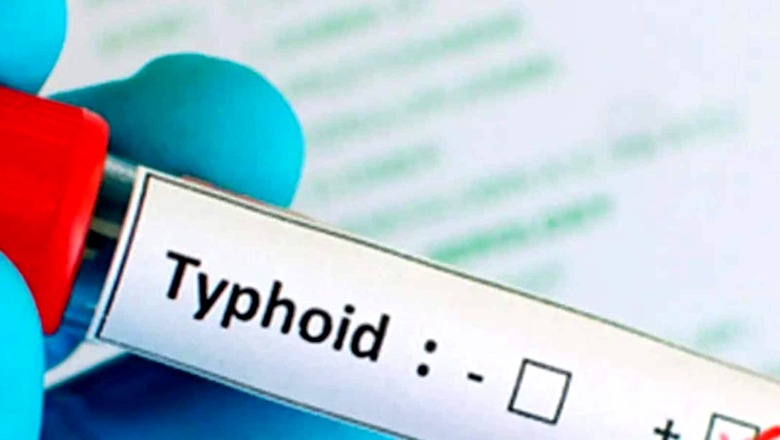
views
Hyderabad-based vaccine-maker Biological E is set to launch a safety surveillance study for its single-dose typhoid vaccine to detect the adverse events that may occur “too infrequently” in pre-licensure clinical trials in India.
Biological E had successfully completed all licensure studies and obtained marketing authorisation in India for this vaccine. In 2020, the vaccine was pre-qualified by the World Health Organization (WHO) and with the approval, the vaccine-maker had become one of two pre-qualified suppliers of the typhoid conjugate vaccine (TCV) to the UN agencies.
The multicentre phase-IV clinical study will be performed in 12 study centres in India and aims to evaluate the safety of a single intramuscular dose of Biological E’s typhoid conjugate vaccine in in participants aged six months to 45 years.
This safety study is currently proposed as a fulfillment of WHO prequalification requirement. Additional post-marketing safety studies in this target population will help in increasing the safety database to meet the WHO’s requirements.
According to the trial protocol accessed by News18.com, the total number of subjects exposed to safety during clinical development in three age bands are 731, 675 and 705, respectively, which is less compared to WHO’s suggested reasonable size of over 1.000 subjects in each age group.
“As per WHO’s recommendation, Biological E agreed to conduct an additional safety study to cover the deficit of enrolment of approximately 269+325+295 subjects respectively in each age group. Accordingly, this study was designed to enroll remaining subjects,” a 37-page document said.
BETTER THAN PREVALENT VACCINES
Typhoid fever is a serious systemic infection caused by the enteric pathogen which is a highly virulent and invasive bacterium that spreads through the faecal-oral route. Although largely an endemic disease, S. Typhi has the potential to become an epidemic.
The incidence of typhoid and paratyphoid varies geographically, with south-central and south-east Asia having the highest incidence, typically exceeding 100 cases per 100,000 person-years for typhoid and with lower, variable rates for paratyphoid.
“Both of the existing Vi polysaccharide (ViPS) and oral Ty21a vaccines have limited efficacy, offer minimal cross-protection against paratyphoid infection, and cannot be given to children less than 2 years of age,” said the trial protocol synopsis document quoted earlier.
#WHOPreQualifiesBEsTyphoidConjugateVaccine #WHO #WorldHealthOrganisation #PreQualifiedSupplier #BE #BiologicalELimited #TyphoidConjugateVaccine #TCV #UN #UNAgencieshttps://t.co/tCkQzNY5aW pic.twitter.com/Hvl3qauT3H— Biological E. Limited (@biological_e) December 11, 2020
It said that Biological E’s vaccine “will overcome the limitations of the currently available polysaccharide vaccines and offer an effective solution for immunisation of not only young children aged two years and above, but also infants and toddlers less than two years of age with a long-lasting immune response and a boostable memory response against S. Typhi infection”.
THE SURVEILLANCE STUDY PLAN
The trial will include 1,252 participants divided into various age groups – 532 infants and toddlers, 360 children and adolescents above two years and less than (or equal to) 18 years and 360 adults over 18 years and less than (or equal to) 45 years.
The latest study, which is likely to get started within this week, is also intended to evaluate the impact on measles immunogenicity in co-administration of Biological E’s Measles-Rubella Vaccine (MRV) with TCV, in comparison with that of the Measles-Rubella (MR) vaccine given alone as a secondary objective.
Biological E’s typhoid vaccine is a glyco-conjugated vaccine developed based on conjugation of the Vi polysaccharide separately with the CRM197 carrier protein.
TOP CRITERIA
The study’s primary endpoints will look for the proportion of subjects with solicited adverse reactions during the first 30 minutes post vaccination observation period and for subsequent seven consecutive days (Day 0-6) for any solicited adverse events captured through the subject diary.
It will also look for the proportion of subjects with unsolicited adverse events (AEs), “medically attended and/or serious adverse events (SAEs), if any, during the post-vaccination 42 days follow-up period”.
Read all the Latest India News here




















Comments
0 comment